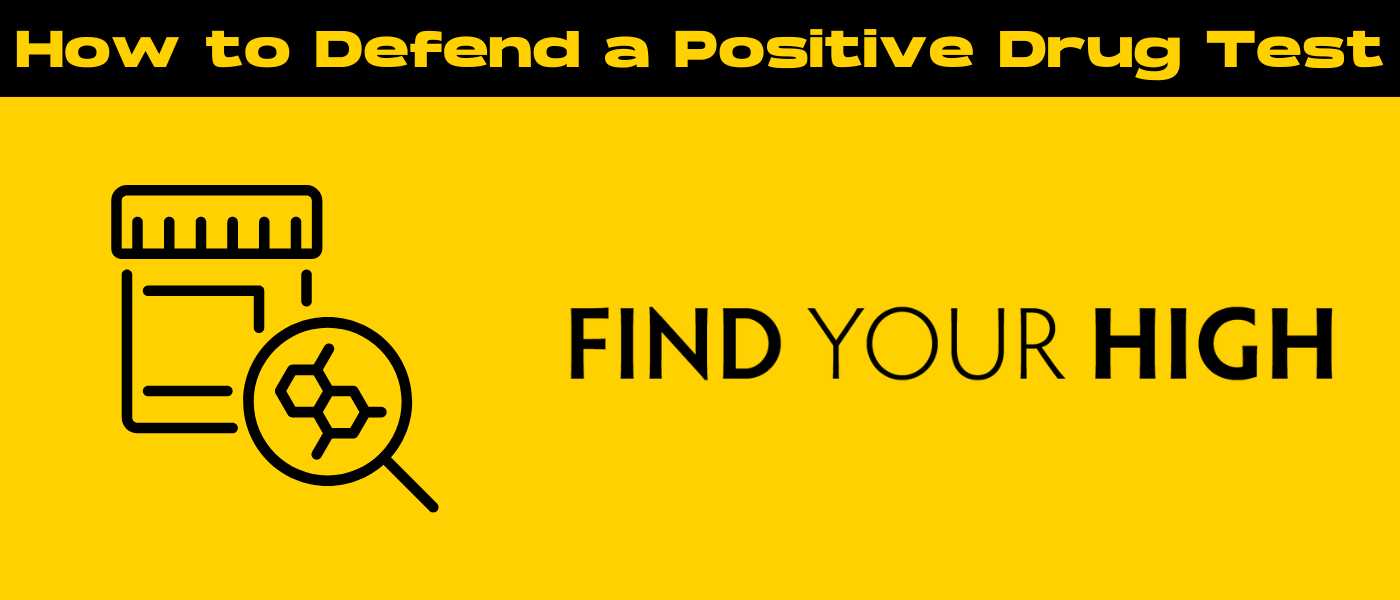Dealing with a positive drug test can be tough, bringing a flood of emotions and many questions. Whether it’s because of a simple mistake, a reaction between medications, or a moment of poor judgment, knowing what to do next is key for limiting the fallout.
This blog is here to help by tackling the tough spots that come after a positive drug test or random testing. It highlights how crucial it is to know your rights and what defenses you might have. With the situation being complex and a lot on the line, getting legal advice is something you can’t afford to skip.
We’ll go through practical steps, the importance of having a lawyer, and tips for managing this tough time, all with the goal of helping you make smart choices and reduce the impact where you can.
Understanding Drug Testing
When it comes to navigating the aftermath of random drug testing or a failed drug test, understanding the mechanisms behind the testing process itself is crucial. Drug tests can vary significantly, not just in what they detect but also in their methods of detection and their window of accuracy.
Among the most common types of THC drug tests are:
- Urine Tests: The most frequently used method due to its simplicity and ability to detect drug use within the last several days to weeks.
- Blood Tests: Though more invasive, blood tests can pinpoint current impairment levels, useful for determining recent use rather than historical.
- Hair Follicle Tests: By examining hair samples, these tests can trace drug use back months, offering a long-term view of substance use.
- Saliva Tests: These are gaining popularity for their non-invasive nature and ability to detect more recent drug use.
The substances commonly tested for include marijuana, cocaine, opiates, amphetamines, and phencyclidine (PCP). It’s important to note that the accuracy and limitations of drug tests can vary.
The reliability of a drug test result can be affected by factors like the test’s sensitivity, the person’s metabolism, and how long the substance can be detected. It’s important to understand these factors to properly respond to a positive drug test result.
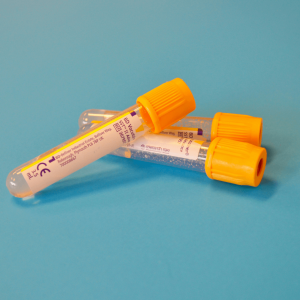
Common Reasons for False Positives
The shock of a positive drug test can be overwhelming, especially if you know you haven’t knowingly ingested any illegal substances.
There are several reasons why drug tests, despite their technological advancements, may yield false positive test results. Understanding these reasons can help you prepare a defense or request a retest under more stringent controls.
Prescription Medications that Can Trigger False Positives
Some prescription medications are notorious for leading to a false positive test result in drug tests. For example:
- ADHD Medications: Drugs such as Adderall or Ritalin can test positive for amphetamines.
- Antidepressants: Certain antidepressants might be mistaken for LSD or amphetamines.
- Antibiotics: Medications like Levofloxacin can occasionally trigger a false positive for opiates.
- Painkillers: Some prescription painkillers can be mistaken for opiates or even heroin on a drug test.
Over-the-Counter Medications and Supplements
Even if you’re not on prescription medication, over-the-counter (OTC) remedies and supplements can interfere with drug tests:
- Cold and Allergy Medications: Common ingredients in these medicines, like pseudoephedrine, can appear as amphetamines.
- Ibuprofen: In some cases, this common pain reliever has been known to produce a false positive for marijuana or barbiturates.
- Herbal Supplements: Certain supplements, particularly those for weight loss or energy boosting, might contain ingredients that mimic amphetamine or opiate markers.
Diet and Poppy Seeds Effect
It sounds like an urban legend, but consuming foods containing poppy seeds before a drug test can result in a false positive for opiates. This is because poppy seeds naturally contain trace amounts of opium derivatives. Amount, processing, and individual metabolism can affect test results, making it a plausible, though rare, reason for a positive result.
Cross-Contamination and Lab Errors
Finally, the environment in which the drug test is processed can also be a source of error. Cross-contamination between samples, incorrect labeling, or simple human error during the analysis can all lead to incorrect results. It’s essential to inquire about the lab’s handling and analysis procedures if you suspect this may have happened.
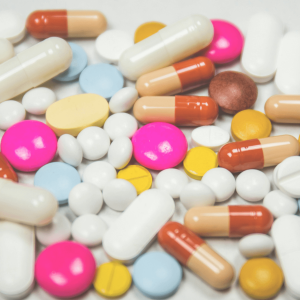
Immediate Steps After a Positive Result
Getting a positive drug test result can be shocking, but it’s important to stay calm and think clearly.
First, don’t confess to using drugs right away since there are many reasons you might get a false positive. Then, ask for a second test or a confirmation test to double-check the first result under more precise conditions, which might fix any mistakes.
It’s also key to write down everything about what you’ve eaten or taken before the test. Make a list of everything you’ve consumed, like prescription meds, over-the-counter drugs, supplements, and even foods that could lead to false positives (think poppy seeds).
Note down what, when, and where you took these substances. This record could be very helpful in defending yourself or figuring out why you got a positive test result.
Legal Rights in Employment
When facing a positive drug test in the workplace, it’s critical to understand your legal rights under federal and state laws.
The Americans with Disabilities Act (ADA) offers protections for employees who are undergoing or have completed drug rehabilitation and are not currently using illegal drugs.
Additionally, some state laws provide greater protections, including laws that limit the circumstances under which an employer can require drug testing or take action based on a positive test result.
Understanding your employer’s policies on drug testing is also essential, as these policies can vary widely and may offer additional rights or procedures for challenging a positive test result.
Legal Rights in Education
The legal rights of students facing drug tests depend significantly on whether they attend public or private institutions. Public schools, being government entities, are subject to constitutional constraints, which means students have certain rights to privacy and due process. Private institutions, however, have more leeway to establish their drug testing policies.
Regardless of the type of institution, there should be a clear appeal process for challenging positive drug test results, which is vital for students who face potential disciplinary action.
The impact on scholarships and financial aid is another crucial consideration, as a positive drug test can sometimes lead to the loss of financial support.
Legal Rights in Criminal Proceedings
In criminal proceedings, the role of a drug test can be pivotal, especially in probation, pre-trial settings, and DUI/DWI cases.
Defendants have the right to challenge the admissibility of drug test results on various grounds, including the accuracy of the test, the methodology used, and the chain of custody of the sample.
Challenging a drug test’s validity requires a clear understanding of both the science behind drug testing and the legal standards for evidence in criminal cases.
Successfully challenging the results can significantly influence the outcome, potentially leading to dismissed charges or mitigated penalties.
Preparation for a Defense
When facing a positive drug test result, especially one that you believe to be a false positive, preparing a strong defense is crucial.
Collecting comprehensive evidence is the first step. This includes obtaining all relevant medical records and doctor’s prescriptions that can substantiate the use of any medication leading to a false positive.
If applicable, gather statements from witnesses who can vouch for your character or specific circumstances that might impact your case.
Additionally, securing representation from an experienced attorney who specializes in drug test disputes can make a significant difference. An attorney with a deep understanding of the legal issues surrounding drug testing can provide invaluable guidance, ensuring that your rights are protected throughout the process.
Defense Strategies: Prescription Medications
When facing a false positive drug test result potentially due to prescription medications, documenting and presenting this as a defense becomes vital.
Start by gathering all relevant documentation, including prescription receipts, doctor’s notes, and a detailed medication history that outlines what you’re taking, how much, and when. This detailed account can then form the basis of your defense, showing a legitimate medical need for substances that might have led to the false positive.
Additionally, involving a pharmacologist or toxicologist in your defense can be a powerful strategy. These experts can provide testimony on how specific medications could influence drug test results, bolstering your case with scientific evidence.
Defense Strategies: Laboratory Errors and Retesting
Laboratory errors, although infrequent, can have significant consequences. Understanding a lab’s accreditation and known error rates is a crucial first step. Accreditation by respected organizations ensures a laboratory adheres to high standards.
If you suspect an error, requesting an independent retest from another accredited laboratory is within your rights. This independent retesting can uncover potential mistakes made during the initial analysis, offering a chance to clear any discrepancies.
The benefits of independent retesting include not only possibly disproving the original result but also highlighting the need for rigorous, error-free testing protocols.
Defense Strategies: Cross-Reactivity and False Positives
False positives in drug testing can often be attributed to the cross-reactivity of substances.
Identifying and presenting evidence of substances known for their cross-reactivity is a critical strategy in disputing false positives. This includes providing a detailed list of all consumed substances, such as medicines, supplements, or specific foods, that might have triggered the false alarm.
Engaging a toxicologist to provide a counter-analysis can be instrumental. This expert opinion can pinpoint how non-illicit substances might have skewed the results, presenting a compelling argument against the reliability of the initial test findings.
The Role of Diet in Drug Tests
The influence of diet on drug test outcomes is a less commonly known yet significant factor. Certain foods and diets can lead to false positives, which is a crucial aspect to consider when preparing a defense for a disputed drug test result.
For instance, consumption of poppy seeds, found in many baked goods, can result in traces of opiates in a drug test, mimicking opiate intake. Similarly, high-sugar diets can sometimes affect diabetes tests, which, although not directly a drug test, highlight how bodily levels measured in tests can be influenced by diet.
Scientific research supports these instances, demonstrating that specific diets and food intakes need to be carefully considered and documented when disputing a drug test.
Providing a detailed dietary log, corroborated by a nutritionist’s expert analysis, can offer compelling evidence in illustrating how certain foods may lead to false positives in drug testing.
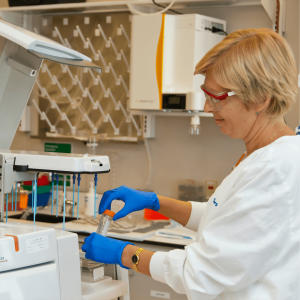
Handling Positive Marijuana Tests: Legal Implications in States Where Marijuana is Legalized
In states where marijuana has been legalized, handling positive tests for THC (the psychoactive component in marijuana) presents unique legal challenges, particularly in employment and legal settings.
While cannabis may be legal at the state level, it remains illegal under federal law, creating a complex legal landscape. Employers, for example, may still enforce a zero-tolerance policy due to federal regulations or safety concerns, despite state laws. Note that California recently passed a law that prohibits workplaces for punishing employees for consuming cannabis outside of work hours.
Additionally, the rise of CBD oil and hemp products, which are legal but can contain trace amounts of THC, further complicates the situation. Individuals using these products may unknowingly test positive for THC, raising issues around the accuracy of drug tests and the need for clear guidelines on acceptable levels.
Navigating the implications of a positive marijuana test requires an understanding of both state laws and the specific contexts, like employment or legal situations, within which the test is being administered.
Workplace Policies and Union Representation
Navigating workplace drug testing policies becomes significantly complex when union representation and collective bargaining agreements are involved. These agreements often entail specific clauses about drug testing, outlining rights and protections for employees that might not be available to non-union workers.
For union members facing a drug test dispute, it’s crucial to understand the nuances of these agreements. They can provide a basis for challenging wrongful positive results, especially when the dispute involves substances like marijuana in states where its use is legal.
Union representatives play a pivotal role in these situations, advocating on behalf of the member, negotiating with employers, and ensuring that any drug testing adheres strictly to the collective bargaining agreement’s stipulations.
This level of support and representation can be invaluable, offering expertise and resources that might be otherwise inaccessible for individual employees navigating complex drug testing disputes.
Rehabilitation and Employee Assistance Programs (EAPs)
The path to addressing issues related to positive drug tests is not only through contestation but also through seeking help and rehabilitation.
Employee Assistance Programs (EAPs) offer a confidential, professional avenue for employees facing substance use challenges. Participation in such programs underscores an individual’s commitment to personal and professional growth, which can be a critical component of one’s defense strategy.
When an employee proactively seeks help through EAPs or rehabilitation programs, it not only aids in their recovery but also demonstrates to employers and legal entities a tangible effort to correct their course. This willingness to engage in treatment and support services can sometimes mitigate the consequences of a positive drug test, especially in cases where substance use does not impact job performance or safety.
Thus, leveraging EAPs and rehabilitation services can be a powerful element in both addressing substance use and fortifying a defense in situations where drug test results are contested.
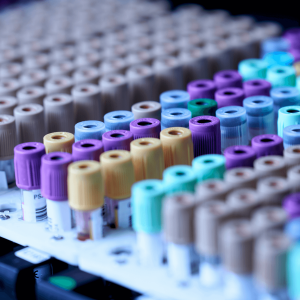
Negotiating with Employers or Educational Institutions
When faced with the challenge of disputing a drug test result, negotiating with employers or educational institutions requires a strategic approach and careful preparation.
Presenting your case effectively hinges on compiling comprehensive evidence, including documentation from medical professionals, toxicologists, and nutritionists, to support the claim of a false positive or mitigating circumstances. It is also advisable to familiarize yourself with the specific drug testing policies and disciplinary procedures of the institution or organization, as understanding these guidelines can provide a framework for your negotiation strategy.
Strategies for presenting your case should include a clear, factual recounting of any substances consumed that could have led to the disputed result and any relevant legal precedents or laws, particularly in cases involving substances like marijuana in legalized states. Professional guidance, such as legal counsel familiar with employment or educational law, can offer significant advantages in navigating these discussions.
Potential outcomes and consequences of these negotiations vary widely. They can range from the complete dismissal of the positive test result and reinstatement of the individual in their role or program, to agreed-upon terms such as undergoing a rehabilitation program or more frequent testing.
However, it’s also important to prepare for less favorable outcomes, which could include disciplinary actions or even termination in employment settings, or suspension in educational contexts. Throughout the negotiation process, maintaining a respectful and cooperative tone, while firmly advocating for a fair review of the evidence, can influence the final outcome positively.
Impact on Career and Education
The long-term implications of a positive drug test can significantly affect an individual’s career and educational prospects.
For working professionals, a positive test may not only lead to immediate disciplinary actions but also tarnish their reputation in their field, making it challenging to secure future employment opportunities. In certain industries, especially those that require security clearances or sensitive work, the repercussions can be even more severe, potentially ending a career.
For students, a positive drug test can result in suspension or expulsion, significantly disrupting their educational trajectory and affecting their prospects for higher education or entry into the workforce. Furthermore, for both professionals and students, these incidents can lead to a loss of scholarships or professional licenses, adding financial strain to the existing challenges.
Strategies for minimizing the impact on your career or education are crucial and start with understanding and adhering to the policies of your workplace or educational institution.
Preemptive steps include engaging in substance abuse education, utilizing resources like Employee Assistance Programs (EAPs), and seeking legal advice when navigating the complexities of drug testing laws.
Should you face a positive drug test, it’s essential to act swiftly by gathering evidence, seeking expert opinions, and exploring options for rehabilitation or treatment programs. Demonstrating a proactive approach to addressing the issue can play a significant role in mitigating its long-term effects.
Balancing transparency with privacy, advocating for oneself through the negotiation process, and leveraging available support systems are indispensable tactics. Ultimately, the goal is to minimize the negative impact while focusing on recovery and professional or educational advancement.
Conclusion
When dealing with drug testing issues in work or school, it’s smart to use Employee Assistance Programs (EAPs), gather solid evidence for your defense, and talk openly with employers or schools. These actions show you’re serious about making things right and help you in negotiations.
A positive drug test can really affect your career or education for a long time. That’s why getting help from legal pros who know employment and education law is key. They can give you great advice and fight for you.
Though it might seem tough, with the right help and support, you can gather the best defense for positive drug test.
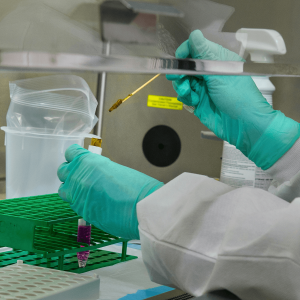
Frequently Asked Questions
1. How do you fight a false positive drug test?
To contest a false positive drug test, you should immediately request a retest from the original sample, if possible. Gather any documents related to prescription medications, supplements, or foods you’ve consumed that could interfere with the test results. Consulting with a medical review officer (MRO) can also be crucial, as they can review your case and potentially identify substances that led to the false positive.
2. Can ibuprofen test positive on a drug test?
Yes, ibuprofen can sometimes lead to a false positive on a drug test, particularly for marijuana. However, this is quite rare and typically requires substantial doses of ibuprofen. It’s essential to inform the testing facility if you’ve been taking ibuprofen or any other over-the-counter medications.
3. What to do if drug test comes back positive?
If your drug test comes back positive, it is vital to act quickly. Verify if the test can be re-evaluated or if a new sample can be tested, especially if you believe the result is a false positive. Consult with a legal expert familiar with employment or educational law in your area to understand your rights and next steps. Additionally, consider reaching out to an Employee Assistance Program (EAP) for support and guidance.
4. Can I drink water before urine test?
Yes, you can drink water before a urine test, but avoid overconsumption. Drinking an excessive amount of water might dilute your urine samples, potentially leading to an inconclusive test result, called a dilute specimen. It’s generally recommended to stay hydrated in moderation.

 Rewards
Rewards



